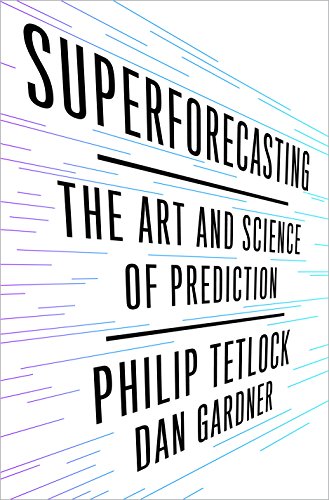

As we find ourselves at a critical juncture, where economic and political systems can be overturned, we turned to nature for inspiration and learned what “species” of investors are most likely to thrive in this rapidly changing environment.
Lessons from nature
From: Essentials of Ecology, 5e, G. Tyler Millers and Scott E. Spoolman. (Brooks/Cole)
Scientists use the niches (pattern of living) of species to classify them broadly as generalists or specialists.
Generalist species have broad niches. They can live in many different places, eat a variety of foods, and often tolerate a wide range of environmental conditions. For example, mice, rats, and raccoons are generalist species. In contrast, specialist species occupy narrow niches. They may be able to live in only one type of habitat, use one or a few types of food, or tolerate a narrow range of climatic and other environmental conditions. This makes specialists more prone to extinction when environmental conditions change.
For example, tiger salamanders breed only in fishless ponds where their larvae will not be eaten. China’s giant panda is highly endangered because of a combination of habitat loss, low birth rate, and its specialised diet consisting mostly of bamboo.
Is it better to be a generalist or a specialist? It depends. When environmental conditions are fairly constant, as in a tropical rain forest, specialists have an advantage because they have fewer competitors. However, under rapidly changing environmental conditions, the generalist usually is better off than the specialist.
Kung Fu Panda vs. Rocket Raccoon
 Double trouble: not only does Kung Fu panda Po belong to a specialist species at the brink of extinction, he is also a fanatic follower of a closed-minded martial art doctrine. Rocket Raccoon on the other hand is a fine example of a generalist survivor. The message? Don’t be like Po…
Double trouble: not only does Kung Fu panda Po belong to a specialist species at the brink of extinction, he is also a fanatic follower of a closed-minded martial art doctrine. Rocket Raccoon on the other hand is a fine example of a generalist survivor. The message? Don’t be like Po…
Source: Kapanlagi.com, Greenscene.co.id
How to invest? Diversify while maintaining flexibility
Just as generalist species are better able to adapt to sudden changes in their environment due to their diversified diet, we figure that generalist investors with a diversified investment diet should also be better positioned to adapt and thrive in the current socio-economic climate – as compared to their specialised counterparts.
For us, this means that diversification is now more important than ever. Second key success factor – in our opinion – is flexibility. The flexibility to move “habitats”, i.e., update your investment strategy if it is no longer working.
Admin heyokha
Share
As we find ourselves at a critical juncture, where economic and political systems can be overturned, we turned to nature for inspiration and learned what “species” of investors are most likely to thrive in this rapidly changing environment.
Lessons from nature
From: Essentials of Ecology, 5e, G. Tyler Millers and Scott E. Spoolman. (Brooks/Cole)
Scientists use the niches (pattern of living) of species to classify them broadly as generalists or specialists.
Generalist species have broad niches. They can live in many different places, eat a variety of foods, and often tolerate a wide range of environmental conditions. For example, mice, rats, and raccoons are generalist species. In contrast, specialist species occupy narrow niches. They may be able to live in only one type of habitat, use one or a few types of food, or tolerate a narrow range of climatic and other environmental conditions. This makes specialists more prone to extinction when environmental conditions change.
For example, tiger salamanders breed only in fishless ponds where their larvae will not be eaten. China’s giant panda is highly endangered because of a combination of habitat loss, low birth rate, and its specialised diet consisting mostly of bamboo.
Is it better to be a generalist or a specialist? It depends. When environmental conditions are fairly constant, as in a tropical rain forest, specialists have an advantage because they have fewer competitors. However, under rapidly changing environmental conditions, the generalist usually is better off than the specialist.
Kung Fu Panda vs. Rocket Raccoon
 Double trouble: not only does Kung Fu panda Po belong to a specialist species at the brink of extinction, he is also a fanatic follower of a closed-minded martial art doctrine. Rocket Raccoon on the other hand is a fine example of a generalist survivor. The message? Don’t be like Po…
Double trouble: not only does Kung Fu panda Po belong to a specialist species at the brink of extinction, he is also a fanatic follower of a closed-minded martial art doctrine. Rocket Raccoon on the other hand is a fine example of a generalist survivor. The message? Don’t be like Po…
Source: Kapanlagi.com, Greenscene.co.id
How to invest? Diversify while maintaining flexibility
Just as generalist species are better able to adapt to sudden changes in their environment due to their diversified diet, we figure that generalist investors with a diversified investment diet should also be better positioned to adapt and thrive in the current socio-economic climate – as compared to their specialised counterparts.
For us, this means that diversification is now more important than ever. Second key success factor – in our opinion – is flexibility. The flexibility to move “habitats”, i.e., update your investment strategy if it is no longer working.
Admin heyokha
Share








